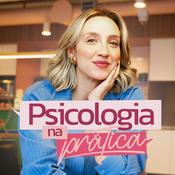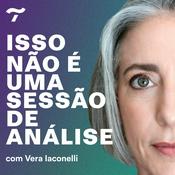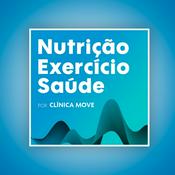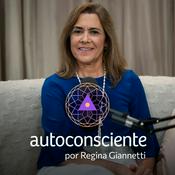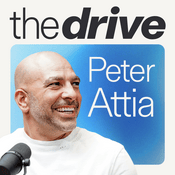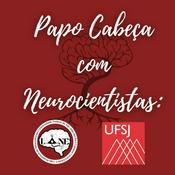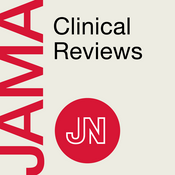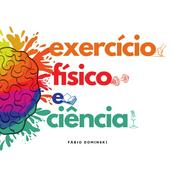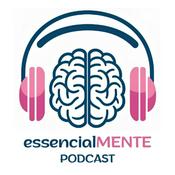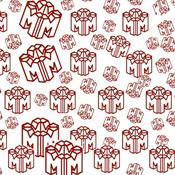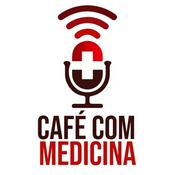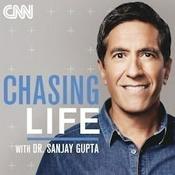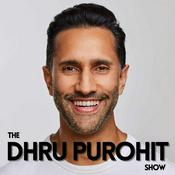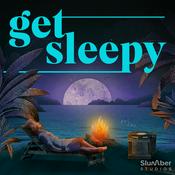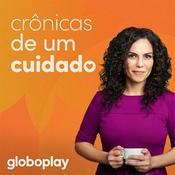Memorizing Pharmacology Podcast: Prefixes, Suffixes, and Side Effects for Pharmacy and Nursing Pharmacology by Body System
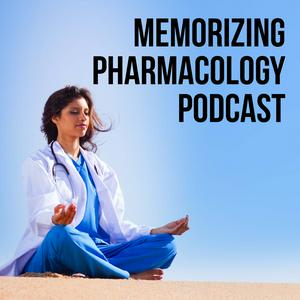
1 episódios

Ep 82 How to Pass Chemistry on the First Try
17/4/2023 | 14min
How to Pass Chemistry on the First Try Find the book here: https://geni.us/iA22iZ or here: https://www.audible.com/pd/B01FSR7HLE/?source_code=AUDFPWS0223189MWT-BK-ACX0-059486&ref=acx_bty_BK_ACX0_059486_rh_us and subscribe to TonyPharmD YouTube Channel here: https://www.youtube.com/c/tonypharmd Here is the Link to my Pharmacy Residency Courses: residency.teachable.com In this episode, I interview Dr. Richard Roberts, a chemistry professor at Des Moines Area Community College, who gives some great advice on succeeding in chemistry. If you are interested in taking an online chemistry or pharmacology class, here's the link https://www.dmacc.edu/programs/pdp/pre-pharmacy/Pages/online-pharmacology-class.aspx Auto Generated Transcript: Welcome to the Memorizing Pharmacology podcast. I'm Tony Guerra, a pharmacist and author of the Memorizing Pharmacology book series, bringing you mnemonics, cases, and advice for succeeding in Pharmacology. Sign up for the email list at memorizingfarm.com to get your free suffixes cheat sheet or find our mobile-friendly, self-paced online pharmacology review course at residency.teachable.com/P/mobile. Let's get started with the show. Before we get started with the show, I just wanted to talk to you quickly about online courses. At Des Moines Area Community College (dmacc.edu), we have both Chemistry 122, which is IntroChem, and Pharmacology PHR185 available online. We're going to talk about some tips to get through a chemistry class but honestly, you know, I've been teaching this for 15 years now. Most of the time when someone doesn't do well, it's not because of their ability. It's because of life getting in the way and it's having so many responsibilities all at once including getting to a certain place at a certain time. Sometimes the online option, which to be fair actually requires I think a bit more autonomy than sometimes the in-person where you're told you know it's this day and all of that stuff. I think that it is a really good option for some people who have things in the way. So we'll talk about how to succeed in chemistry class and to some extent pharmacology. Do check out the online pharmacology course which is half full. It really fills up once semester's over and students realize there is no summer class for them to make that class up at other colleges. Then the chemistry class, you can get on the waitlist or enrollment for fall starts here in a couple of days so dmacc.edu if you want to check those out or if you have questions just email me at [email protected]. Again, the whole point of all of this is to help you succeed on your journey to becoming a health professional and not letting pharmacology and chemistry get in the way but instead allowing those two courses to be the ones that are foundational to helping you succeed. Alright, welcome to the Memorizing Pharmacology podcast. Today I have Dr. Richard Roberts who teaches chemistry at the local community college and what I wanted to do is I wanted to ask him a bunch of questions about chemistry and getting good at chemistry that can really help us in Pharmacology. So Dr. Roberts, welcome to the Memorizing Pharmacology podcast. "Thank you Tony, glad to be here." Okay so the first thing is when we talk about chemistry there's a Stanford study that showed that the one class that knocks out more pre-meds and science students as they move through STEM and things like that is chemistry but the data actually show that it's not that the class is hard it's that students' perceptions of themselves is a little bit low in terms of their abilities. What are some of the things you've been able to do in your career to help students kind of increase their chemistry confidence? "I think a lot of it is about spending less time actually teaching and more time actually with the practice portion of the student experience. I know that I try to avoid lecture as much as possible and when I do lecture I try to keep it down to five to ten maybe 15 minutes at a time because I think it's better for students to actually have an opportunity to struggle with the material rather than watch me do the material for them." "I kid them that I am sometimes like the Bob Ross of chemistry so you know I can watch five programs of Bob Ross painting landscapes and after that experience buy myself a bunch of paints but it never really turns out so I think it's all a matter of practice. I'm sure that Bob probably practiced his craft for a number of years before he got so good at it." "Yeah and he had a certain voice with that and he would kind of whisper into it as if he's talking to a single person and that's how you know you're supposed to address them." "Yeah, I play parts of your videos but when you actually add up the minutes that I use never more than a minute or two at a time." "So when a student comes sometimes math is something that's a real struggle for them even though maybe they just they just pass statistics with a C or a B. One of the things that students can do to really improve their math, because we don't mean it to be this way, but chemistry can be a math class in disguise sometimes. I guess that's kind of unfortunate. I know that I always say that you know math is kind of the language and glue of most of the sciences in one way or another. I know that even biology, when you really get down to it, has a fair amount of math. And it comes down to practice. I always enjoy talking with students who tell me that they're not good at math. I always tack on 'yet'. It's one of these things like my kids will, you know, when they've taken various music lessons, they want to quit because they're not good at piano. And I always say 'well, yet'. And I'm sure that everybody that took up the study of piano probably reached that same point in their study where they felt like they were never going to be good at it. And it just, you know, different people are going to take a different amount of practice to develop that skill. Okay, well something that happened with the pandemic is the kind of move to some online classes, classes that traditionally were not even allowed to… Well, let me back up and say that sometimes programs like nursing and medicine would not accept the chemistry class that was taught online. But now with the pandemic, that may have changed for some. And I know that many of our students, our average student is a single parent with two children who's about 27 or 28 years old. Online is a boon for them to not have to come in, to get that child care and those types of things. Tell me a little bit about how you've adapted the online to chemistry because that's really hard to do. Well, I think one of the biggest hang-ups that schools have had is about the lab portion of the class. So if there was accepting institutions, I know that our local big regent institutions had some pushback probably 10 or 12 years ago about the possibility of online classes and their biggest hang up was that students weren't getting the experience with the hands-on portion. During the pandemic we kind of lucked out and a couple of our instructors had been teaching online for some time and we were able to kind of piggyback on that. They were using kits from one of the commercial sources and I don't know whether I can mention a name. I'll skip mentioning the name but there are several commercial lab producers out there and that kind of kept us afloat. And ever since then we've kind of maintained a few sections of these just for those students. And I know that in kind of my online conversations with students getting to know them, a lot of them are just as you described. They're single parents, they might even be parents with a partner but nonetheless if they have small children that kind of limits their ability to travel. It's like do I go to school and then not only am I paying a couple hundred dollars a credit for the class but I'm also spending several hundred dollars a week for daycare. We also get students that live in remote locations, rural locations that may not have the opportunity to travel to a nearby college. So it does expand the opportunities for students. Yeah, I actually had the chance to take the kits on the molecular kids and I just thought okay well I'll just go to their houses thinking you know just be in the area and I found that it was actually a half a day that I took to send out these. I think it was maybe 14 kits where I was going and turning off the paved road was not an uncommon thing but it was really neat to meet them. Well, I guess one of the biggest things that students are worried about is their grades and it's almost a self-fulfilling prophecy if they do poorly on the first exam all of a sudden they're like 'see, I told you, I told you I wasn't good at chemistry'. What are some of the ways that students can work on that confidence and say that it's not that you are bad at chemistry, you had a bad exam? Here is my attempt to correct the text: "That's feedback that your preparation might need to change in some way. What are the things you can do after test one? Because test one is a point, it's not a trend, right? How can we make sure that that trend trends up? Well, I'm glad you kind of mentioned that it isn't just all bad. I usually have an exercise after that where I kind of call it a triage experience where I have them identify things that they were good at on that test. Because they obviously, if they've been studying at all, they probably were able to gain some skills in some areas. It's not a complete loss. What were the things that you did the worst at? How can you kind of recover that material? Because chemistry is one of these classes that kind of builds. It's like a big snowball and if you miss out on some of these early concepts, it's going to hurt you in the long run. So how can we recuperate that? Are there any barriers that they had in their preparation? Sometimes they'll admit that they worked too much in the weeks preceding a test. How can you change things so that you can afford yourself more time and more ability to prepare for the next test? So I kind of put a little bit of the ball in their court to get them to realize that they have the ability to change things, to give themselves a better opportunity for success later. And I also try to be intrusive with my communication. So sometimes if I notice that they're not getting assignments completed on time, I start emailing them. And pretty soon, just like my children, if I pester them enough, they just get tired of me asking them to unload the dishwasher. So we had something due for sixth grade math. There's a test today and I was with the girls this morning and I was like okay, well what I want you to do is I just want you to write the questions on paper and then answer the quiz. And they feel okay if all three have to do it but if there's any exclusion they don't. So let's kind of finish up with the one I've asked you a bunch of questions. What would be the one thing that maybe you've learned in all these years that is absolutely essential for succeeding in chemistry or even in life? But what is that kind of like this: if you do this one thing, everything becomes a lot easier? I think a lot of it comes down to just positive attitude and allowing yourself to invest in what you're actually studying. I know that I took a lot of classes that I considered obstacles, like art appreciation or something like that. But in the long run, I always tried to look for the hidden gem in all of these things. And I always tell students that there's probably bound to be something that they enjoy about the class. It may not be the content, it may be the students that they're surrounded with, their neighbors, or maybe they enjoy me telling dad jokes every day or things like that. I'm sorry, dad jokes? Back when we were young we just called them jokes but apparently as they age they become dad jokes. So trying to make the experience as inviting and as fun for the students as I possibly can. Kind of letting them know that there is an opportunity to make small mistakes along the way and it's all right. Everything will turn out all right. And not to dwell on something that didn't go well for you because the chances are that if you have a positive attitude and actually invest in what you're doing, you're probably going to have more successes than failures along the way. So trying to keep everybody thinking positively as they can. There's got to be a dad joke in there. So keep your eye on the proton or something like that. Look at the protons, not the electrons. You know, and I think I lost an electron. Are you sure? I'm positive. All those things, yeah. So okay, well thanks so much for being on the Memorizing Pharmacology podcast. Thank you Tony. Thanks for listening to the Memorizing Pharmacology podcast. You can find episodes, cheat sheets and more at memorizingpharm.com. Again, you can sign up for the email list at memorizingpharm.com to get your free suffixes cheat sheet or find our mobile friendly self-paced online pharmacology review course at residency.teachable.com/p/mobile. Thanks again for listening. Like to learn more? Find my book here: https://geni.us/iA22iZ or here: https://www.audible.com/pd/B01FSR7HLE/?source_code=AUDFPWS0223189MWT-BK-ACX0-059486&ref=acx_bty_BK_ACX0_059486_rh_us and subscribe to my YouTube Channel TonyPharmD here: https://www.youtube.com/c/tonypharmd Here is the Link to my Pharmacy Residency Courses: residency.teachable.com
Mais podcasts de Saúde e fitness
Podcasts em tendência em Saúde e fitness
Sobre Memorizing Pharmacology Podcast: Prefixes, Suffixes, and Side Effects for Pharmacy and Nursing Pharmacology by Body System
Ouça Memorizing Pharmacology Podcast: Prefixes, Suffixes, and Side Effects for Pharmacy and Nursing Pharmacology by Body System, On Purpose with Jay Shetty e muitos outros podcasts de todo o mundo com o aplicativo o radio.net

Obtenha o aplicativo gratuito radio.net
- Guardar rádios e podcasts favoritos
- Transmissão via Wi-Fi ou Bluetooth
- Carplay & Android Audo compatìvel
- E ainda mais funções
Obtenha o aplicativo gratuito radio.net
- Guardar rádios e podcasts favoritos
- Transmissão via Wi-Fi ou Bluetooth
- Carplay & Android Audo compatìvel
- E ainda mais funções


Memorizing Pharmacology Podcast: Prefixes, Suffixes, and Side Effects for Pharmacy and Nursing Pharmacology by Body System
baixe o aplicativo,
ouça.


